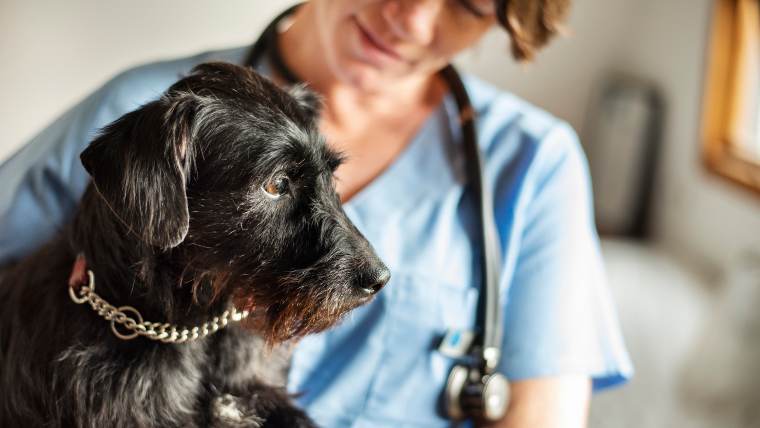How to Deal With Unexpected Vet Bills

When your pet is sick or hurt, the only thing you can think about is getting them better. But in most cases, their illness or injury is unexpected and care is very expensive. The vet bill can cause you to feel a little ill yourself.
There are some ways to help deal with these expenses without burying yourself in debt though.
1. Dip into your emergency fund
If you’ve done well with budgeting and saving, you probably have an emergency fund set up. These unexpected expenses are just what that fund is for. Even a few hundred dollars can help reduce the stress of the big expense.
It's typically better to use your savings before putting something on credit, which can be costly, so this should be your first choice if available.
2. Ask about an installment plan
If the bill is too big to tackle all at once, you may be in luck. Many vets will work with you when it comes to a big bill by helping you set up a payment plan.
The vet will require you to make regular monthly payments until the debt is paid off. There may be some room for negotiation or they may have a standard plan that you have to adhere to. They may charge interest, but usually these kinds of installment plans don't involve an interest charge.
3. Ask about vet bill assistance
There are several animal welfare organizations that will help with unexpected medical bills. Sometimes as a grant, other times as a loan. Check with your local animal rescue services first, but if you can’t find relief there, you can find some national organizations to reach out to. There are even a few organizations that offer assistance with specific breeds.
The Humane Society has a great list of national organizations that may be able to help.
4. Invest in pet insurance before something goes wrong
It may surprise you to know that there are a few companies that offer medical insurance for your pet. The cost of your plan will vary depending on the type of pet you have, their age, and their medical history. There will also be other factors to consider like your deductible. But these insurance plans can offer reduced fees for regular check-ups as well as emergency services.
While it’s probably less expensive to cover routine visits on your own than pay the premiums and deductibles, insurance can be a money-saver if there’s an unexpected vet bill.
5. Pay with credit
If you have a low-interest credit card, you can put the expense on your card and pay it off monthly. Keep in mind that you’ll be paying interest as well and your monthly minimum payment will increase so you’ll need to account for that in your budget.
There are some credit products that exist specifically to help fund pet healthcare expenses (CareCredit is probably the most well known). This is another option, although it's important to note that the interest rate on these kinds of accounts are often not very favorable, so it can be costly to pay off the debt.
If you have good credit and the expense is sizable, you could consider applying for a small, personal loan from a bank can help get you through, but this likely isn't the best option for most situations.
6. Earn extra income
Whether it's a payment plan or a one-time charge to your credit card, if your run-in with the vet has created debt, you can pay off your balance quickly and return to your normal budgeting efforts by bringing in some extra money for a short time. Get a part-time job, have a yard sale, start a part-time business, or look for income making opportunities online. It's not easy to take on additional work, especially when you already have a full time job, but the effort may be worth it if it helps you power through a major unexpected expense.
If you're stuck with a bill and need one-on-one help figuring out how to balance out your debts and other expenses, MMI offers free, confidential financial counseling, available 24/7 online and on the phone. We can help you find the best way to handle debt and start making the most of your money.















